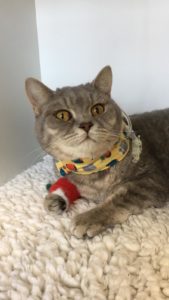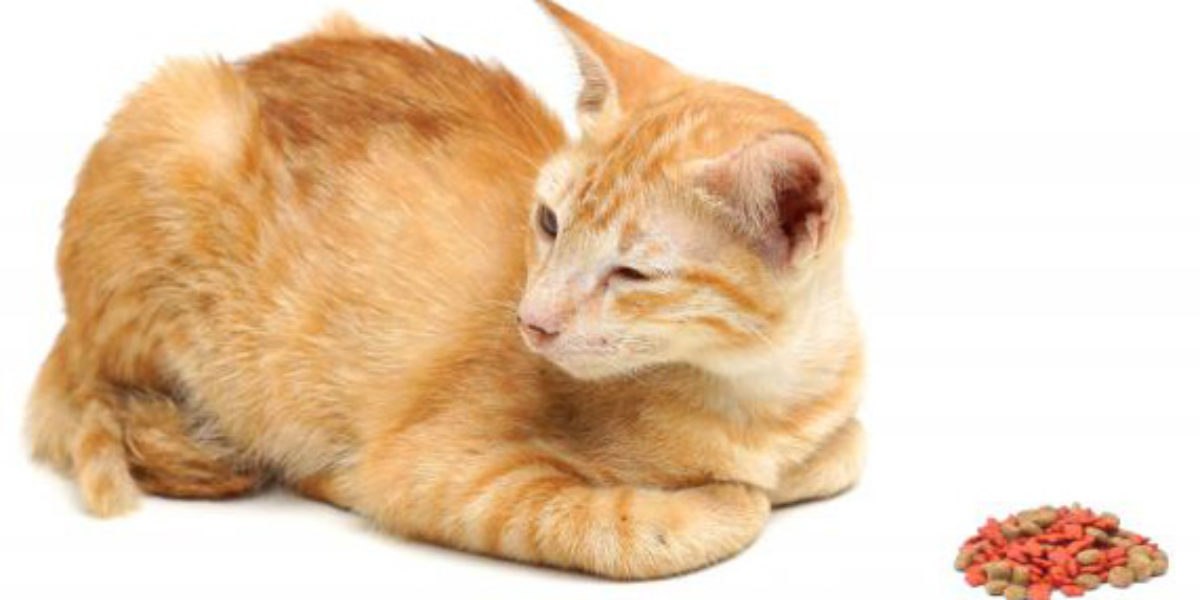A common sign of illness in cats is a reluctance to eat, eating less, or refusing to eat at all. A loss of appetite is termed ‘inappetence’. A lack of appetite might also be referred to as ‘anorexia’ when a cat eats nothing at all, and ‘hyporexia’ when food intake is below what is normal. It is very stressful for caregivers when a cat won’t eat, and it requires veterinary attention.
Please see https://icatcare.org/advice-cat-carer-guides/ for two guides for caregivers on inappetence and feeding tubes. These guides accompany guidelines the International Society of Feline Medicine (ISFM) has created for veterinary professionals.
There are many reasons why a cat may go off its food. Cats can be notoriously fussy eaters, and a change in their diet may lead to food avoidance. Therefore, always introduce a new diet to your cat in gradual stages, adding the new food as a small proportion of its existing diet and increasing this gradually. This may be done by offering the new food next to the old food and gradually reducing the amount of the new food as some cats do not like different types of food mixed together.
Sometimes a cat can be tempted to eat by warming the food, or offering tasty treats such as fish or chicken, but always seek veterinary advice to find the cause of the reduced appetite as every day a cat eats less than normal can be detrimental.
However, a cat going off its food can indicate that it’s feeling unwell. Many diseases depress a cat’s desire to eat; therefore, it’s always important to monitor your cat’s eating, and remember that periods without food can be very serious to cats. As a species they can develop liver problems if they go without food even for a short time. Conditions such as dental disease, kidney and liver problems, intestinal problems, infections, and cancerous processes are just a few that can affect a cat’s appetite. Any disease causing nausea (feeling sick) or pain can affect appetite. Dehydration can be another contributing factor so make sure your cat has several sources of water to encourage drinking and consider a water fountain as many cats prefer moving water to drink.
If your cat is eating less than usual, or worse, not at all, you should take it to see a vet as soon as possible. It’s important to get the cause diagnosed and treatment started to minimise weight loss, which can lead to further health problems. In some cases, a feeding tube will need to be placed to give your cat nutrition (and medications) without stress. Cats should never be forced to eat (syringe feeding) as this can cause stress or even severe health complications if a cat inhales any food. For cats with longer term illnesses, or to facilitate medicating, a feeding tube can allow them to be managed at home with support from the veterinary team.

Figure legend (courtesy of Sam Taylor): This cat has a feeding tube (oesophagostomy) placed and his caregiver can be trained to give food and medications at home, allowing the cat to recover in familiar surroundings. See https://icatcare.org/advice-cat-carer-guides/ for a step by step guide on feeding your cat via a tube at home along with a video guide found here.
If no physical health issues causing inappetence can be identified, then the cause of appetite loss may be psychological. Inappetence can be caused by stress, in which case it’s important to identify the cause of stress and try to reduce it. There may be a trained member of the veterinary team at the clinic who can assess your cat’s environment and routine to identify any causes of stress or seek the help of a trained behaviourist. See our advice page on stress in cats.
In conclusion, it’s important to take your cat to a vet for a health check if you notice a change in appetite, to get to the root of the problem and for appropriate treatment.
Thank you for visiting our website, we hope you have found our information useful.
All our advice is freely accessible to everyone, wherever you are in the world. However, as a charity, we need your support to enable us to keep delivering high quality and up to date information for everyone. Please consider making a contribution, big or small, to keep our content free, accurate and relevant.
Support International Cat Care from as little £3
Thank you.
Donate Now


